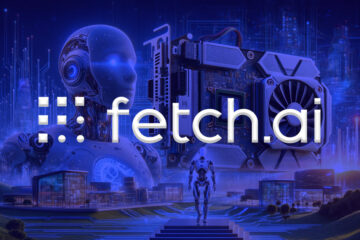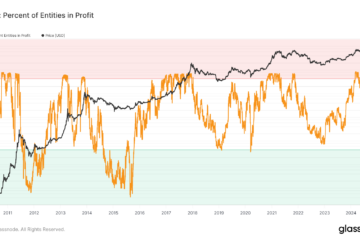Elon Musk announced that an upgraded iteration of his artificial intelligence firm xAI’s chatbot Grok may be released next week.
This revelation came via Musk’s social media post on March 29, following xAI’s announcement of Grok-1.5 in a blog post. The enhanced AI chatbot will initially be accessible to “early testers and existing Grok users on the social media platform.”
Additionally, Musk hinted at the ongoing development of Grok 2, which he anticipates will surpass current AI standards in all aspects.
Grok-1.5
Grok-1.5 is an advanced version of the Grok-1 AI model and comes with improved reasoning and a context length of 128,000 tokens.
xAI’s analysis indicates significant enhancements in the performance of its advanced chatbot, particularly in coding and math-related tasks. However, it falls short compared to Google’s Gemini Pro 1.5 and OpenAI’s GPT-4.

According to the firm:
“Grok-1.5 achieved a 50.6% score on the MATH benchmark and a 90% score on the GSM8K benchmark, two math benchmarks covering a wide range of grade school to high school competition problems. Additionally, it scored 74.1% on the HumanEval benchmark, which evaluates code generation and problem-solving abilities.”
Moreover, Grok-1.5 can utilize information from substantially longer documents, and the model can handle longer and more complex prompts while maintaining its instruction-following capability as its context window expands.
The firm added:
“Grok-1.5 is built on a custom distributed training framework based on JAX, Rust, and Kubernetes. This training stack enables our team to prototype ideas and train new architectures at scale with minimal effort.”
Grok is Open-source
Earlier this month, xAI took a significant step by open-sourcing the base code of Grok-1.
This decision arose as a response to a legal action initiated by Musk against OpenAI, the organization he once co-founded. Musk alleged that OpenAI has deviated from its original commitment to prioritize open-source model development over shareholder interests.
Meanwhile, xAI said the released code was “the raw base model checkpoint from the Grok-1 pre-training phase, which concluded in October 2023. This means that the model is not fine-tuned for any specific application, such as dialogue.” It added that the model was licensed under Apache License 2.0.
 Bitcoin
Bitcoin  Ethereum
Ethereum  Tether
Tether  XRP
XRP  USDC
USDC  JUSD
JUSD  TRON
TRON  Lido Staked Ether
Lido Staked Ether  Dogecoin
Dogecoin  Figure Heloc
Figure Heloc  Cardano
Cardano  Wrapped stETH
Wrapped stETH  WhiteBIT Coin
WhiteBIT Coin  Bitcoin Cash
Bitcoin Cash  Wrapped Bitcoin
Wrapped Bitcoin  USDS
USDS  Wrapped eETH
Wrapped eETH  Binance Bridged USDT (BNB Smart Chain)
Binance Bridged USDT (BNB Smart Chain)  LEO Token
LEO Token  Monero
Monero  Chainlink
Chainlink  Hyperliquid
Hyperliquid  Canton
Canton  Ethena USDe
Ethena USDe  Coinbase Wrapped BTC
Coinbase Wrapped BTC  Stellar
Stellar  WETH
WETH  Zcash
Zcash  USD1
USD1  Litecoin
Litecoin  Sui
Sui  Avalanche
Avalanche  USDT0
USDT0  Dai
Dai  sUSDS
sUSDS  Hedera
Hedera  Shiba Inu
Shiba Inu  World Liberty Financial
World Liberty Financial  Ethena Staked USDe
Ethena Staked USDe  PayPal USD
PayPal USD  Toncoin
Toncoin  Cronos
Cronos  Rain
Rain  Polkadot
Polkadot  Tether Gold
Tether Gold  Uniswap
Uniswap  MemeCore
MemeCore  Mantle
Mantle 


